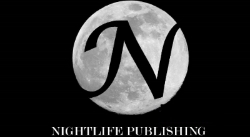For the first time (and hopefully not the last time), we have a guest writer on IPN. Ms. Leti del Mar of Rock the Book has shared some of her classic and traditional methods of book marketing with us. As an independent publisher, I plan to borrow some of these techniques.
-------------------------
The publishing industry
is changing. It is being flooded with affordable e-books by traditionally
published authors, self-published authors, and authors published by small
companies. E-books are one of the fastest growing facets of the publishing
industry, and authors are taking control of their own marketing and book
promotion.
The gatekeepers used by
the big bad publishing houses are becoming irrelevant. Many authors are
skipping the traditional steps: write a book, query an agent, get signed by
said agent, agent submits to publisher, publisher publishes said book, and then
publisher does little to promote it. Instead they bring their work directly to
the reader.
What that means for
readers is that the reading choices out there are endless.
What that means for
authors is that, while it is easier to get your book out there, it is just as
easy for your book to get overlooked.
So with no gatekeepers,
how does an author get noticed? How does a writer find an audience for their
book?
For just a moment, let’s
forget all about technology, Amazon, e-books, e-readers and book bloggers.
Go back in time a decade or two to when these things didn’t exist. In those
days of mortar and brick bookstores, how did people find books to read?
They asked a friend.
Remember those conversations? You might even still be having them. They went
something like this:
“Hey, have you read any
good books lately?”
“Yes, I have! I just
finished (insert name of book you read a decade ago), and it was fantastic! You
have to read it”
“Okay, next time I go to
Borders, I’ll pick it up.”
Back in the early '90s,
I was reading Michael Crichton and John Grisham, even before the films. Why? My
friends were. They would tell me about a title I hadn’t read, and I would go
over to that bookstore that is no longer in business and pick up a copy.
Believe it or not, that
is how people still discover new titles. Only now most of these conversations
happen online.
We talk about what we
are reading on Facebook, give a great title a shout out on Twitter, post a
picture of the cover of a good read on Instagram or Pinterest. You too should
join in on meaningful conversations about books and share what you are reading.
That’s right. I’m
telling authors to frequently share what they have read, not what they have
written, and here’s why:
People will listen when
they like what you have to say. If you recommend good reads, they will pay
attention. They will want to learn more about this person who has such great
taste in books, and they will click on your picture, look at your profile, and
discover that you too are an author. This won’t happen 100% of the time,
but when it does, it is powerful.
What makes this even
more powerful is chatting about books in the same genre you write.
Let’s go back into that
time machine and think about another way we used to find books to read. We
browsed our favorite aisles. If you read westerns, you would go directly
to the western aisle. If you read historical romance, you explored those aisles.
This is where book
bloggers come in. Find bloggers who read what you write. Ask them to read,
review or feature your work. That way readers who love Young Adult Paranormal
and go to Young Adult Paranormal blogs, will find your Young Adult Paranormal
book.
Want to make this even
more effective?
Don’t just solicit these
blogs. Follow them and leave comments. Do this for a while before soliciting
anything. That way, when you do ask the blogger to read, review, or feature
your work, they will see you as a long-time follower and be more inclined to
help.
Over at Rock
the Book, we found each other
because we write in the same genre and frequent the same message boards. We
enjoy reading similar things and share with each other books we have read and
ideas about what we want to read. The cool part is that we live all over
the world and do our sharing online.
So yes, the publishing
world is changing, faster than we can keep up with it. But the old ways for
finding a good book still work. Use those old ways with new twists, and with
some elbow grease and a little luck, your book will get its due notice.
